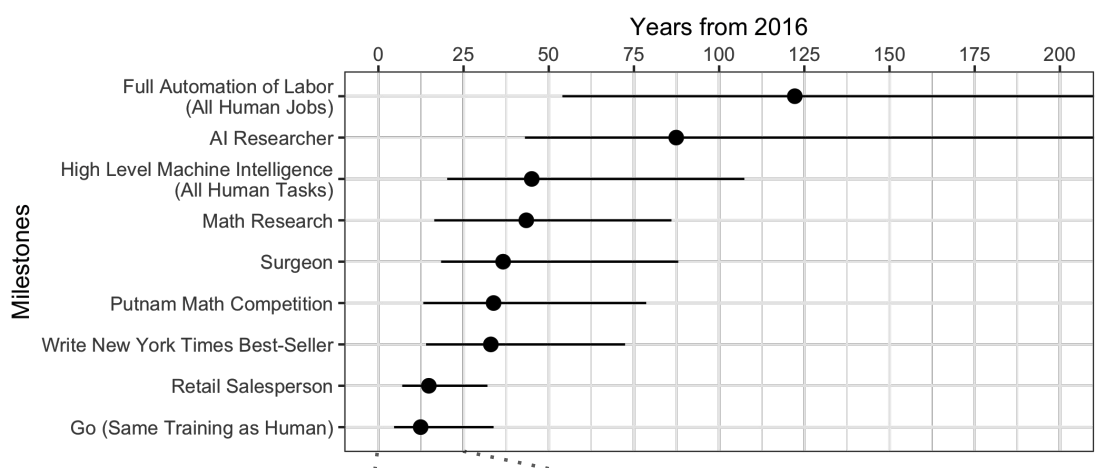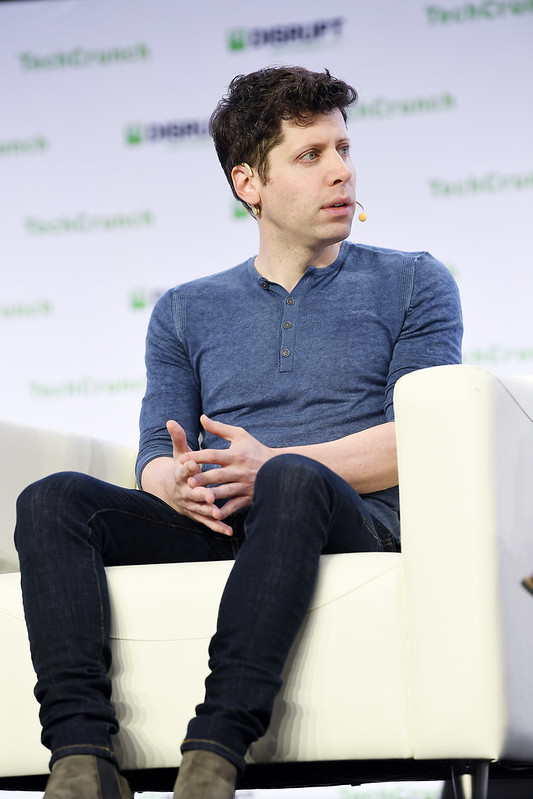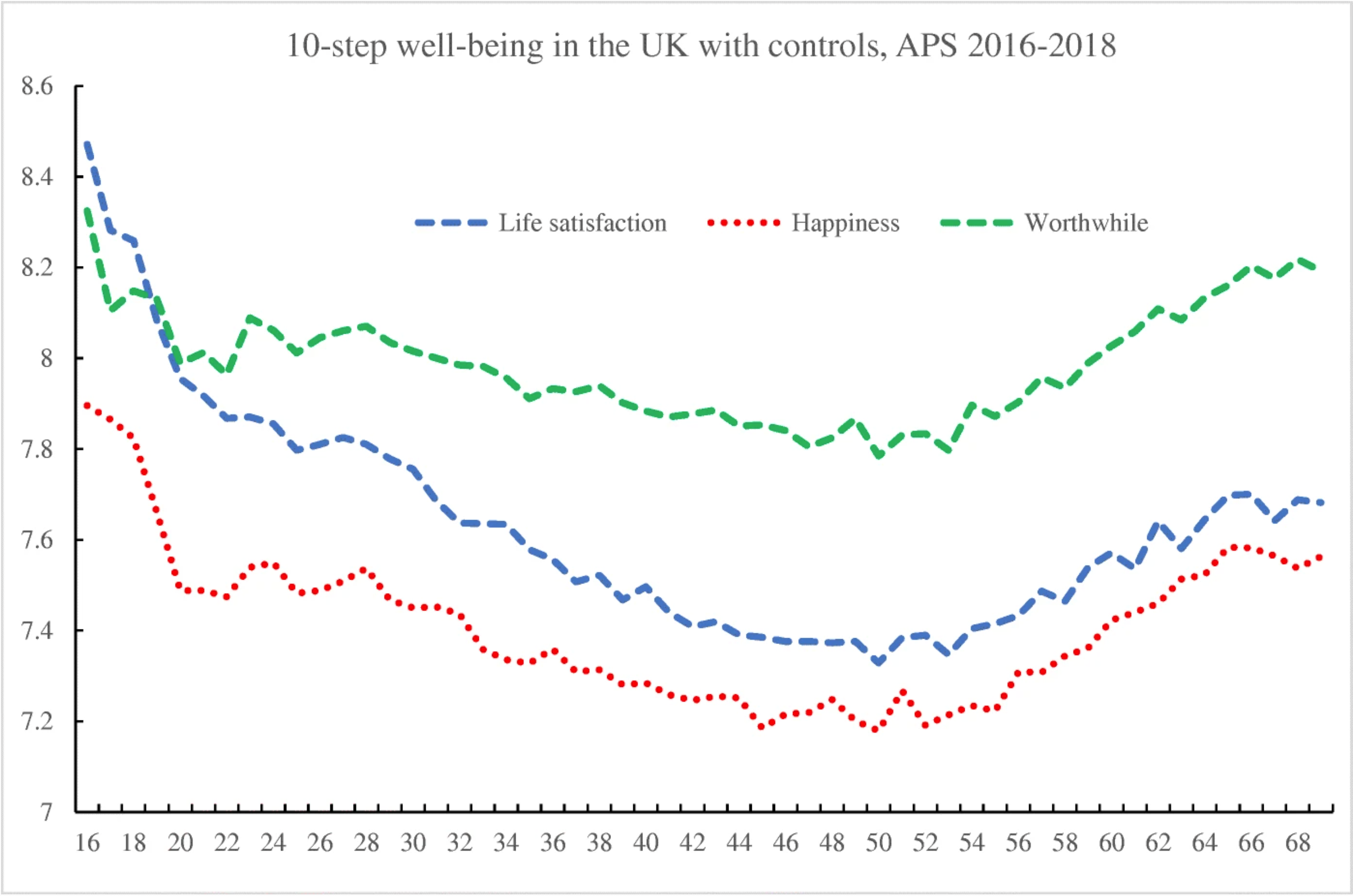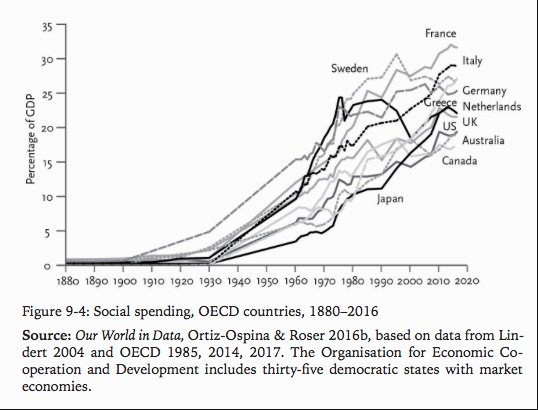
The most important development in human history will take place not too far in the future. Artificial intelligence, or AI for short, will become better (and cheaper) than humans at most tasks. This will generate enormous wealth that can be used to fill human needs.
However, since most humans will not be able to compete with AI, there will be little demand for ordinary people’s labour-power. The immediate effect of a world without work is that people will lose their primary source of income and whatever meaning, mastery, sense of belonging and status they get from their work. Our collective challenge is to find meaning and other ways to reliably get what we need in this new world.
What you just read is the prevailing story among both optimists and pessimists around the development of AI. The story can and should be challenged. (For an excellent challenge, see Divya Siddarth, Daron Acemoglu, Danielle Allen, Kate Crawford, James Evans, Michael Jordan, E. Glen Weyl’s How AI Fails Us.) However, here I will focus on what the story takes to be our challenge: How do we ensure that ordinary people continue to experience a growing standard of living and sense of meaning in a world without work?
Although it is not always recognised, a satisfactory answer to this challenge requires answering two related but distinct questions.
- The easy question is to find possible, realistic replacements for work as a source of income and meaning.
- The hard question is how to go from here to there, to make the possible actual. I call this AI’s transition problem.
Not only is the transition problem harder to solve. Replacing workers with AI may prevent any realistic solution to the challenge AI presents. This is AI’s transition paradox. The paradox, in short, is that the more workers who are replaced by AI, the more difficult it becomes to build the institutions that are necessary to make the lives of ordinary people better in a world without work. Without a solution to the transition paradox, the AI future will be dystopian.
I will flesh out the transition paradox in more detail. But first, how do we solve the easy question?
The easy question

There are several possible answers to the easy question, which recall is the task of finding possible, realistic replacements for work as a source of income and meaning.
One attractive model is proposed by Sam Altman, OpenAI co-founder and CEO. In the essay “Moore’s Law for Everything,” he argues for giving everyone a stake in the AI economy. By increasing taxes on profitable companies and property, one could fund a basic income, a universal, unconditional income paid monthly to all citizens or residents independent of whether they work or not.
One possible hurdle with the basic income solution is that people may like their jobs and prefer to receive income through work than through welfare. Not only do many people find meaning and belonging in their work. Many find it demeaning to receive welfare. Unemployment is among the major sources of lasting unhappiness.
Finding meaning, belonging, and happiness without work might nevertheless be a solvable problem, as suggested by e.g. John Danaher in Automation and Utopia Human: Flourishing in a World without Work.
Many retired people already live on a form of basic income. They are no less happy than working people. Indeed, they report being happier. Of course, a reason for this may be that they have earned their time of leisure. A more plausible explanation is that when we are no longer expected to work, and our peers no longer work, not working is no longer a marker of failure or a cause of anxiety about the future.
Other groups that are happy without work include adolescents and young adults. Indeed, a notable finding in happiness research points to a happiness U-curve over our lifetimes. Younger and older people are happier than people in their prime working age. The happiness U-curve is evidence that we can live good lives without work.
The hard question

Altman’s answer to the easy question is to tax property and capital and provide people with a generous basic income. If we can solve the problem of finding happiness outside work, we have a satisfactory solution to the easy question. However, the harder question, how to get from here to there, remains unresolved. This is what I call AI’s transition problem.
To answer the hard question, we need to understand how institutions are built. An obvious source of insight is the historical record. How did we build institutions that have proven to distribute the gains from trade for the benefit of ordinary people, such as welfare states, regulation of working time, coordinated wage setting, and free or subsidised health care and education?
The optimistic take

The transition problem is rarely discussed explicitly by tech optimists. However, their implicit view finds a voice in Steven Pinker’s recent book Enlightenment Now. According to Pinker, social expenditure on institutions like education, health care and social insurance is the inevitable result of economic growth.
These are the things we want more of when we become richer. And since rich countries are predominantly democratic and thus responsive to citizens’ needs, rich countries provide people with what they want. This is evident from the statistics: The richer countries become, the more they spend on opportunity enhancing and equalising institutions.
Let us connect Pinker’s view with the prevailing story of AI replacing workers that we began with. With growing unemployment, the existing social insurance and taxation programs will be unsatisfactory in providing people with what they need.
In response, political elites will want to find new ways to tax wealth and provide people with other sources of consumption power. These elites may either be motivated by the same sense of noblesse oblige that the AI developers in Silicon Valley profess to be motivated by, or they will be forced to do it by people demanding change.
The realist take
Another, and in my mind, more plausible, the view is less optimistic. Institutions that increased the well-being of ordinary people were not given on a silver platter; they had to be fought for. They result from a long struggle, in many cases spearheaded by organised labour.
Indeed, democracy itself results from the struggle for improved conditions for ordinary people. The fight for political rights went hand in hand with improved working conditions and other social rights.
This struggle depended on several factors: One factor was working people’s ability to coordinate and organise, and crucially their power to stop production through coordinated strikes. Another closely related factor was the political elites’ fear of revolution, strengthened by the 1917 revolution in Russia. A third was policies that supported full employment, increasing workers’ bargaining power.
The transition paradox

If we accept the view that new institutions must be fought for through organised struggle, we face a transition paradox. When workers are increasingly replaced by AI, their power to push for necessary changes in the existing institutions for the benefit of ordinary people weakens.
When more people are unemployed, there will be more demand for the jobs that need to be met by humans, driving down wages and weakening organised labour. The immediate effect of fewer workers and lower pay is a reduction in government revenue.
Governments are run on tax on labour income and consumption. As suggested by Altman, this can be mitigated by taxing property and capital. But without political pressure, a reduction in the tax base is more likely to lead to cuts in government expenditure, the very thing that is necessary to fund expensive basic income schemes.
It is notable that even in the heyday of social democracy and organised labour, governments did little to tax capital and land. To believe that this will change in an age of weakened labour seems naïve at best.
Furthermore, it is not like governments have much success in taxing the very companies spearheading the AI revolution. If governments cannot tax them in their current state, we have no reason to believe they will be able to tax them when they become bigger and more powerful, and the wealth of nations is entirely dependent on their success.
Democracy’s demise
But will not democracy solve the problem, as the Pinker story suggests? If a sufficiently large share of people is unemployed, they could, through voting, force politicians to implement a basic income.
This assumes, however, that unemployed people will coordinate their interests and demand the necessary changes. An alternative view is that people will lose faith in the system or try to find convenient scapegoats in immigrants or foreign powers.
Even more bleakly, the day ordinary people have no other power than their votes, we have no guarantees that democracy survives. As long as wealth is built by ordinary people and they are necessary to protect the country against foreign invasion, ordinary people have real power. Historically, ordinary people’s ability to work and fight to provide the material basis upon which they demanded and gained, through struggle, a right to a say in the collective decisions that shape their future. However, if workers no longer are needed to sustain economic growth or protect the country against invasion, how will they keep their claim to power? If someone moves to take their rights away, how will they resist?
Empowering AI
An upshot of the transition paradox is that its solution cannot be an after-thought to the development of AI. AI needs to be developed and implemented with the transition paradox in mind. Developing AI must be geared to strengthen the forces that can push for reforms to make ordinary people better off.
This means that AI needs to be developed by and for workers to increase their productivity and control over the means of production. (See, e.g., Anton Korinek and Joseph Stiglitz and Siddarth et al.’s How AI Fails Us). We ignore the distribution of power at our peril.
